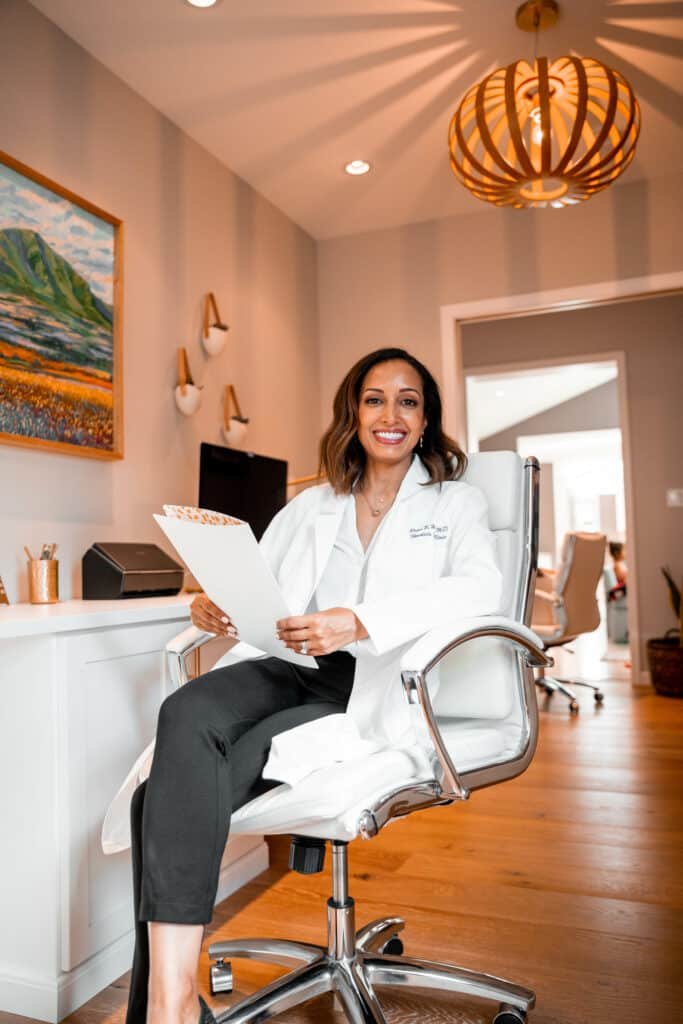Interview Tips for Medical School and Residency
It's interview season time and I thought I'd dole out some tips based on my previous experience as an applicant, as well, as being on the other side of the interview table. I was on the residency selection committee at NYU as Chief Resident and interviewed fellowship applicants when I was at Boston Children’s. I interview high schoolers for Duke and staff for my office. But, remember it really is about finding the best fit for the program and for yourself. 
Part One, The Prep.
- Dress appropriately - this one really is a no brainer, but I have to start with it. You want the interviewers to focus on you and not what you’re wearing. Wear a suit. And even though you all know I love my 4.5 inch heels, don’t wear them to an interview. You’ll be touring the hospital/school and you want to be able to keep up. I'll be doing an entire post on what to wear, so stay tuned
- Know your resume - Know absolutely every single thing you list on your application. In detail. Without exception and extensively. If you listed it on there, you should be able to discuss even tangential topics related to it.
- Don’t exaggerate on your application or during your interview - You’d be surprised at how many applicants fold when I ask a follow up question to their volunteer experience. “Oh, well, it says 2 years there, but I really only went twice during that period”. Not good. It will get found out.
- Be confident - good eye contact, firm hand shake, sit straight. This is your chance to show you’re a real person, someone that they want to work alongside, who demonstrates the empathy and focus required for medicine.
- Do your research - learn about the med school or program to which you’re applying. Remember it is all about the right fit. Nothing tells me that an applicant is not interested than asking questions about the hospital/program structure the answers of which are readily available on the website. Guaranteed they will ask “Why are you interested in XXX”. So, do your homework and be able to explain why you’re a good match for them. Also, prepare a few thoughtful questions for each program/school, because they will always ask “Any questions?”
Part Two, The Execution.
- Practice, but not overly much so that you’re not natural. There are many core questions you know you will get. So prep for them - why ophtho (or whatever your specialty for residency is? Why medicine? What do you do in your spare time? You know they’re coming, so go ahead and think of answers and prepare them. You will be really nervous early on in the interview trail and it’ll be helpful to fall back on rehearsed answers. Just make sure they don’t come across as canned.
- Behavior based questions - I love asking them and I’m sure applicants hate answering them. They’re the “Describe an experience when you worked as part of a team” or “Tell me about your most enlightening failure or your most disappointing success”. Figure out what quality you want to discuss, tell a story and the action you took.
- Deep breaths - Each institution has a different way of doing interviews. Some are one on one, some are two attendings with you and some (like NYU Ophthalmology) consist of 12 attendings, 2 chief residents and you. So, deep breaths, gather yourself, you got this.
- Be authentic - I can always tell when an applicant is just telling me what they THINK I want to hear as opposed to speaking truthfully. Be yourself. Just the most polished version of yourself you can put forth.
- The first five minutes are the most important. I think it’s human nature. There are so many studies out there at how people make up their mind about others within X number of seconds or minutes. So, start off strong. Be energetic and enthusiastic. Draw the interviewer in. Make them root for you. Often times the interviewer can be the extra little push to get an applicant in.
- Know what is inappropriate for the interviewer to ask you. I am hoping people don’t come across this, but any questions about your race, age, gender, marital status, religion and sexual orientation. And they can’t ask about kids unless you volunteer it. I was really surprised when at how many students/residents have reached out to me to confide in me about inappropriate questions they were asked during their interview. If something like that happens to you, please report them to the SFMatch if you're a med student or to your Pred Med Advisor if you're in college.
Part Three, Finding the Right Fit.
What do you want from a school or program? I guarantee if you really sit down and spend some time contemplating this, the entire interview and application process for graduate school or residency will go much more smoothly. It’s not just about getting into a program or matching. It truly is about finding the right fit.This list will vary slightly if you’re applying to graduate (medical/nursing/optometry/PA) school versus residency. Think about what is most important to you and then if you find a program that aligns with that, it will be easier to convince THEM that you are a good match. Because you are.
- Reputation - Is the school known for turning out primary care docs and you want to be a neurosurgeon? Might not be a great fit. Or is the residency strong in clinical education?
- Presence of City/County hospital
- Presence of a VA hospital
- Research in your particular area of interest
- Working environment - What’s the culture of the school or program?
- Location - Do you want to be close to home? Do you want to be in an urban environment?
- Mentorship/Sponsorship opportunities - I didn't think about this much when applying, but I wish I had. I think schools and programs are much more attuned to the idea of sponsorship which very much differs from mentorship. Read this excellent post on shemd about it.
- Culture/FitPersonally, when I was applying to medical school, I turned down a full tuition scholarship to a school in North Carolina, because I really wanted to experience school in an urban environment. Location and reputation were high on my list. I chose Cornell ultimately over other NYC/Philly I truly felt like I fit in at Cornell. I also liked that it was affiliated with Memorial Sloane Kettering (I was thinking oncology for the longest time) and Rockefeller University for future research. Consider what’s important to you, make your list (or amend this one), and then rate each program/school you interview at based on it.
Hope that was helpful and best of luck to everyone who is applying!

